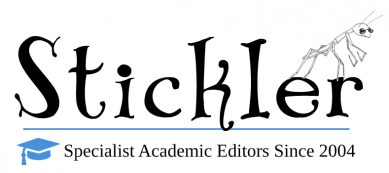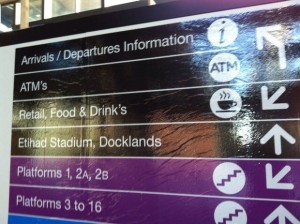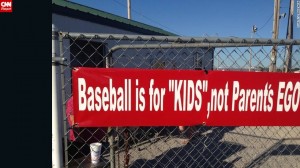When you edit other people’s writing for a living, you start to see grammar and spelling mistakes everywhere you go. If it’s on Buzzfeed it’s funny, but if a mistake pops up in your thesis, essay, or website, that’s another thing.
Here are some common mistakes we love to hate!
- Using apostrophes to show possession vs. plural -s
(photo credit: EmmaB/GuardianWitness)
One use of the apostrophe is to show possession. For a singular noun, add an apostrophe plus the letter s (e.g. “The dog’s coat”). For plural nouns, you can just add an apostrophe (e.g. “The dogs’ coats”).
Plural nouns are usually formed just by adding -s or -es (e.g., “legs,” “churches”), or by changing the final -y to -ies (as in “piggy” to “piggies”). Ninety-nine percent of the time, no apostrophe is needed, provided you are not indicating possession. You can read about the exceptions here.
In the image above, it should be “ATMs” and “Retail, Food & Drinks.”
- Of vs. off
(photo credit: Via Buzzfeed)
“Of” is a preposition that relates two words. Usually, it shows possession or a relationship, or what material something is made from. For example, when you say, “Bill is a friend of Mary’s,” you’re using “of” to describe the relationship between Bill and Mary. When you say, “That cup is made of porcelain,” you’re describing materials.
In the photo above, the tagger meant to talk about the connection between “you” and “everything good.”
“Off” is usually used as an adverb, but sometimes it acts as a preposition. In any case, it most often creates the idea of separation or moving away. For example, “The plane took off at 4:00 PM.”
- Every day vs. everyday

(Photo credit: 8002575540/GuardianWitness)
It’s amazing how much difference a space makes.
“Every day” means the same as “each day.” For this sign, “Amazing Value Every Day” would be correct.
If used as one word, “everyday” is an adjective that means “daily or commonplace.” On the above sign, you could retain “everyday” but still make the grammar correct by switching the order to “Amazing Everyday Value.” Note: “Everyday” can also be used as a noun, as in, “The challenges of the everyday can be exciting.”
- Strange quotation marks
(Photo credit: 1emsmom/CNN)
Let’s just forget about the comma placement (and lack of space thereafter) in the above, which is also debatable. There are several ways to use quotation marks, whether you’re including someone else’s words in your own work, or talking about the title of a poem, or denoting speech.
The above example is none of those, and the only use that’s left is to convey sarcasm or a euphemism. You’ll see people do this when they’re talking and they create quotation marks in the air with their fingers.
We think the makers of the sign actually meant that baseball is for kids, rather than so-called kids.
- You’re vs. your
(photo credit: Huffington Post)
This is one we at Stickler see every day.
“You’re” stands for “you are” (e.g., “you’re going to love this”). “Your” shows possession (as in, “mind your manners”).
In the image above, it should be “You’re the best teacher ever.” While the gift is very cute, we hope these students weren’t trying to honor their English teacher!
- They’re vs. their
Like the you’re vs. your problem, the confusion between “their” and “they’re” has a similar solution.
“They’re” stands for “they are” (e.g. “they’re heading out to sea”) while “their” is used to show possession (e.g. “they forgot their boat”). So, what the sign means to say is “They won’t even know they’re learning.”
We won’t get into the irony of this being a display for educational software…
- Commas and direct address
(Photo credit: Lifebuzz)
You might not know what the grammatical term is for the above issue, but you definitely know that there is a comma missing between “eat” and “people.”
Whenever a sentence talks to the reader it’s called direct address, and it requires a comma. Another example would be, “Andrew, I said that we needed four pairs of socks, not four socks.” The first comma makes it clear that Andrew is not actually part of the sentence.
- Not running a spell check
(Photo credit: Capital Bay)
Individuals aren’t the only ones who are prone to grammar and spelling mistakes. Clothing giant H&M found itself the butt of many jokes when it debuted this t-shirt in 2015 (it should be “genius”). It’s just one more example of why checking all of your writing for grammar and spelling mistakes is so important.
Not sure if you’re breaking one of these rules in your writing? Get in touch!








